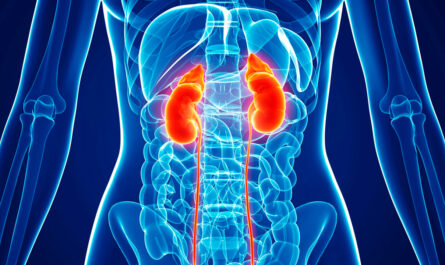At the University of California San Diego School of Medicine, Professor Pradipta Ghosh, M.D., pondered an intriguing proposal from the University of Leeds in the United Kingdom. An email from Dennis McGonagle, Ph.D., professor of investigative rheumatology, proposed a collaboration to investigate a COVID-19-related mystery.
Ghosh, a professor in the Departments of Medicine and Cellular and Molecular Medicine, was approached with concerns about an unusual Autoimmune Disease, MDA5-autoantibody associated dermatomyositis (DM), in patients who may or may not have had COVID-19 exposure. These patients, mostly Caucasians, presented with severe lung scarring and rheumatologic symptoms such as rashes, arthritis, and muscle pain.
DM is more common in individuals of Asian descent, but the sudden increase in cases among Caucasians was alarming. McGonagle shared that some of these patients were progressing rapidly to death.
Ghosh, the founding director of the Institute for Network Medicine at UC San Diego School of Medicine, and her team at the Center for Precision Computational Systems Network (PreCSN), had a unique asset to contribute to the investigation: BoNE, the Boolean Network Explorer. This powerful computational framework could extract insights from big data by focusing on shared characteristics among patients while disregarding individual differences.
McGonagle, an expert in inflammatory and autoimmune conditions, and Ghosh’s team formed a formidable partnership. The U.K.’s National Health System (NHS) centralized healthcare database, with comprehensive medical records for a large population, facilitated the investigation.
Together, they assembled a team, including Saptarshi Sinha, Ph.D., interim director of PreCSN, and Paula David Ramos, M.D., conducting research fellowship in experimental rheumatology, at the Leeds Institute of Rheumatic and Musculoskeletal Medicine. Additionally, two PreCSN-affiliated students, Ella McLaren and Sahar Taheri, joined the effort.
The study began with the detection of autoantibodies to MDA5, an RNA-sensing enzyme responsible for detecting COVID-19 and other RNA viruses. Among the 60 patients, 25 developed lung scarring, or interstitial lung disease, which resulted in eight deaths due to progressive fibrosis.
However, Ghosh and her team discovered that this was not a typical case of MDA5 autoimmune disease. The behavior, rate of progression, and number of deaths were distinct. Using BoNE, they identified a strong correlation between the highest MDA5 response and high levels of interleukin-15.
This international collaboration uncovered a new COVID-19-related syndrome, shedding light on the complex interplay between COVID-19 and autoimmune diseases. The findings were published in eBioMedicine.
*Note:
1. Source: Coherent Market Insights, Public sources, Desk research
2. We have leveraged AI tools to mine information and compile it




